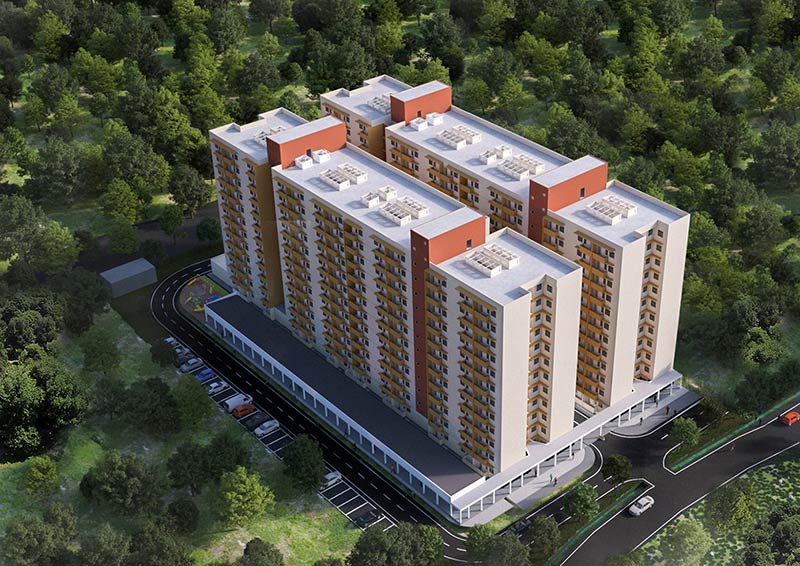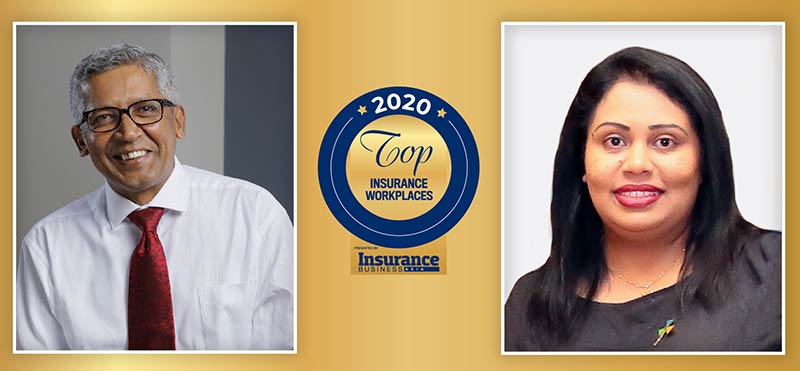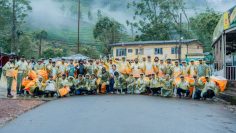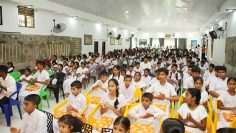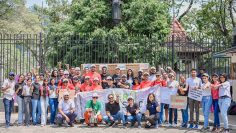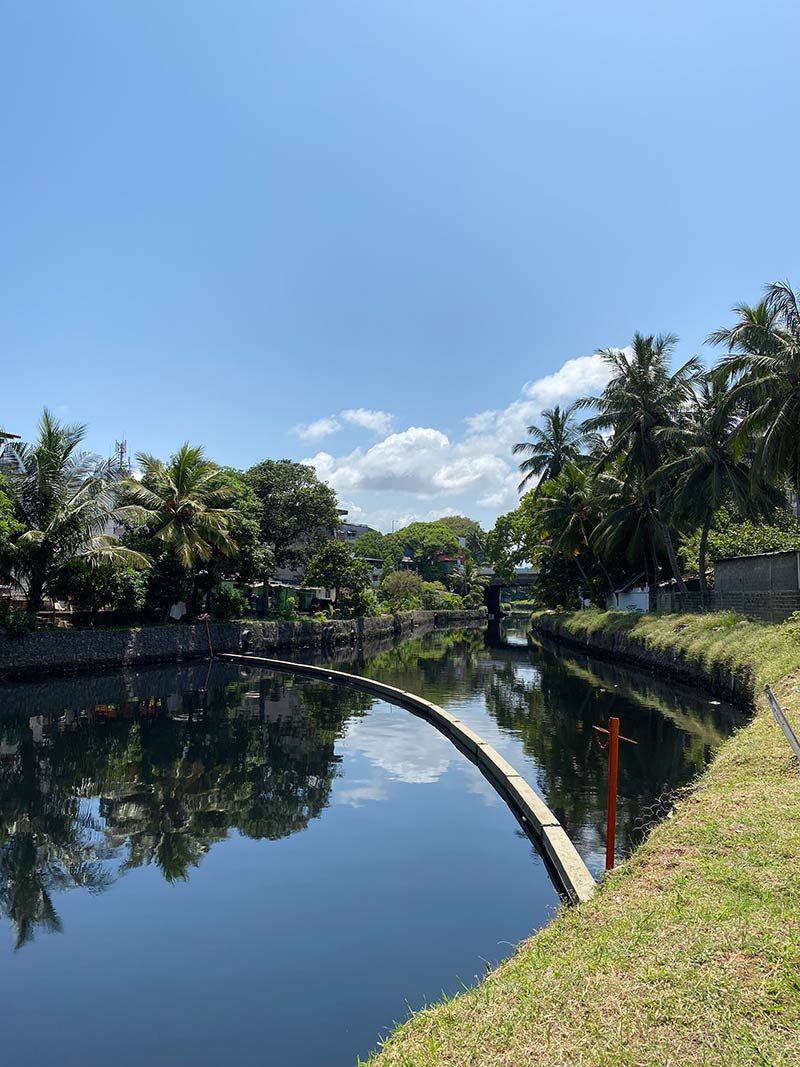
MAS Pilots Innovative Trash Trap Project to Address Marine Plastic Issue at Source
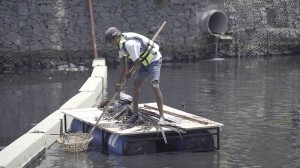 ‘Ocean strainer’ pilot a collaborative multi-stakeholder effort
‘Ocean strainer’ pilot a collaborative multi-stakeholder effort
In a country that is rich in biodiversity and marine ecosystems, today the stunning natural reserves of Sri Lanka face considerable threat due to the issue of plastic pollution. While beautiful stretches of golden sand fringe the nation, many of them are covered in the remnants of our own consumerism, with plastic waste lining the beaches. Data from the Ministry of Environment suggests approximately 400 MT of plastic waste is generated daily within Sri Lanka.
MAS Holdings is piloting an innovative solution to cap the problem at the source itself, by capturing plastic waste in the rivers and canals which play a critical role in transporting mismanaged plastic waste from land to ocean. By installing trash traps in the canals that push plastic waste into our oceans, MAS plans to address the issue head on by trapping, collecting and removing plastic waste before reaching the ocean. The pilot of the proposed solution, a prototype ‘ocean strainer’ trash trap, was placed in the Dehiwala canal recently, to prevent plastic waste from reaching the ocean through the canal mouth. The pilot, which is an expansion of MAS’s ocean plastics initiative, was launched on the 18th of August 2020, with the participation of Mrs. Chandrani Samarakoon, Secretary to the Ministry of Local Government and Environmental Affairs of the Western Provincial Council, Mr. Sumith Nishantha Perera, Director – Planning, Ministry of Local Government of the Western Provincial Council, Sharika Senanayake, Director – Environmental Sustainability at MAS Holdings, and other members of the respective teams.
“The issue of marine plastics is a complex one. Not only must the oceans be cleaned of existing plastics that pollute the waters and beaches, but new plastic waste must be stopped from entering the oceans. Different forms of trash traps are used around the world to collect floating waste from rivers, preventing mismanaged trash from inland waterways from reaching the oceans. At MAS, we started working on the ocean plastic issue in 2015, not only to help clear up our beaches of plastic waste, but also to upcycle that waste by recycling the plastic to create yarn that can be used in our products. Developing the ‘ocean strainer’ is the next step in this effort, to create a more sustainable approach to addressing the marine plastic issue by capturing it at the source”, said Sid Amalean, Head of Sustainable Business at MAS Holdings.
“Our team wanted to ensure that we worked together with the relevant local experts to not only learn from the global best practices, but also understand the context of our local marine environment and canal systems to develop a trash trap design specific to the Sri Lankan conditions. The ‘ocean strainer’ that we have installed in the Dehiwala canal is the pilot of this project; the beginning of a journey that we hope will help us understand the impact of this trash trap design and the scope of the plastic pollution issue in the waterways in and around Colombo, that will help us improve and replicate this solution at other locations” added Sharika Senanayake, Director of Environmental Sustainability at MAS Holdings.
This initiative is the result of a successful private-public collaboration between MAS, the Western Provincial Council, the Marine Environment Protection Authority, the Sri Lanka Land Reclamation and Development Corporation (SLLRDC), with the support of the Western Province Tourism Development Authority, the Environmental Police and the people of the Dehiwala area.
Commenting on the collaboration, Mrs. Chandrani Samarakoon, Secretary to the Ministry of Local Government and Environmental Affairs stated, “Under the guidance of the Hon. Governor of the Western Province, the Ministry of Local Government, Environmental Affairs and Tourism has been actively engaged in implementing several initiatives to conserve the overall natural environment of the Western Province. In order to protect the coastal environment of the area, the Ministry in partnership with our private sector partner for this project, MAS Holdings, planned the installation of a floating controlled trash trap at the Dehiwala canal with the aim of preventing plastic and polythene waste floating to the ocean via the canal mouth. This will be implemented and monitored as a pilot project, and depending on its success, the Ministry plans to expand this model in other canals that are situated in the Western Province that directly connect to the ocean. We sincerely appreciate the contribution of all stakeholders and partners in carrying out this pilot project.”
General Manager of the Marine Environment Protection Authority, Dr. P.B. Terney Pradeep Kumara added, “From all the waste that reaches the ocean, only 30% comes back to shore, which means 70% remains at sea. This means preventing plastic waste from reaching the ocean is a very crucial step of marine environment protection. MEPA and MAS started to engage to find a sustainable solution to the marine pollution issue and collaborated on this pilot. The trash trap acts as a mesh fence above and below the water level, capturing the waste. It also allows the public to see how much plastic waste gets collected, and therefore raises their awareness on the scale of the problem.”
In order to achieve scale and impact in reducing the amount of plastic waste reaching the ocean through our rivers and canals, MAS hopes that this pilot will be the beginning of a journey of further collaboration with interested partners and stakeholders to expand the project to inland waterways across Colombo and Sri Lanka.

